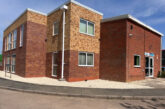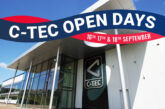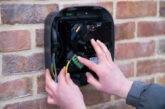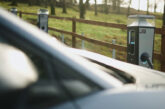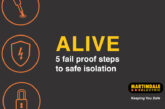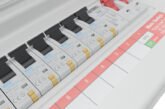
Dr Justin Maltby-Smith CEng FIET CMgr FCMI, a former electrician/electrical contractor, NICEIC Head of Schemes and Operations, NAPIT Technical Scheme Development Manager, and current Group Managing Director for the BAFE Fire Safety Register, discusses the electrical industry and its strong relationship with fire safety.
The common misconception with fire and life safety systems is that they’re all suitable, compliant, and working as intended.
Unfortunately this isn’t always the case, and this is where the electrical contracting industry needs to ensure that its work is compliant with additional British Standards/Codes of Practice. The appointed ‘Responsible Person’ has a duty to ensure this, and new legislation came into effect late last year to strengthen this obligation.
Section 156 of the Building Safety Act 2022 made amendments to the Regulatory Reform (Fire Safety) Order 2005. This better defined responsibility highlighting that appropriate record keeping of fire safety information is required for the building’s lifespan. Enforcement authorities (notably The Fire and Rescue Service) have also been provided easier avenues to act against non-compliance of fire safety legislation.
Relevance to the electrical sector
It’s important to stress this information to the electrical contracting industry, as this may not have been as prominent news to you as it was to the fire safety industry.
The BAFE Fire Safety Register actively promotes the importance of verifying the competence of any organisation who is awarded a contract to fulfil fire safety work, which we consider is via appropriate Third-Party Certification (awarded by a UKAS Accredited Certification Body).
If Responsible Persons are doing their due diligence, this will affect the electrotechnical sector on a wider scale very quickly. These individuals will be looking for this specific evidence of competency to perform works on their fire safety systems, and without this evidence the work could be lost to competitors.
Over recent years, the fire safety industry has been actively working on how to elevate and demonstrate competency for organisations and their employed individuals providing and maintaining life safety systems.
What isn’t as prominent is the discussion of where the scope of an electrical contractor ends and where further certification and registration is required, to have quality evidence of competency for specific systems (fire and life safety) working to appropriate British Standards/Codes of Practice.
Electrical contractors (electricians) will be assessed by their Certification Body against the requirements of BS 7671 and other Scheme related criteria. However, the requirements related to performing work on fire and life safety systems such as fire detection and alarm systems (BS 5839-1 or BS 5839-6), emergency lighting (BS 5266-1), and evacuation alert systems (BS 8629) don’t generally form part of these assessments.
As a result, additional assessment and certification is needed to demonstrate the appropriate competency to design, install, commission, verify, and maintain these fire and life safety systems. BAFE works with leading UKAS Accredited Certification Bodies to deliver its Schemes and support the industry in meeting these requirements.
For example within the electrical contracting industry, NICEIC offers additional certification (BAFE SP203-1) which can be achieved to demonstrate your ability to provide and maintain commercial/non-domestic fire detection and alarm systems to BS 5839-1.
NICEIC notes on its website that: ‘BAFE’s SP203-1 scheme objective is to provide a means by which fire protection system users and regulatory authorities can be confident that the companies providing fire alarm systems have processes in place to effectively undertake such activities within their defined scope of work.’
Furthermore, NAPIT offers additional certification (BAFE DS301) which can be achieved to demonstrate your ability to provide and maintain domestic grade D fire detection and alarm systems to BS 5839-6.
NAPIT notes on its website that: ‘The BAFE DS301 Scheme recognises the importance of providing compliant fire detection and fire alarm systems in domestic premises while at the same time minimising false alarms.’
Further areas for Third-Party Certification
There are also additional electrotechnical related specialisms where Third-Party Certification can be achieved, including emergency lighting systems and evacuation alert systems. Evacuation alert systems have had a dedicated British Standard (BS 8629) since 2019 which covers their design, installation, commissioning, and maintenance.
It’s imperative that all fire and life safety systems are suitable and are provided by competent contractors who are working to the required British Standards/Codes of Practice. These specialist areas of expertise can be evidenced appropriately via Third-Party Certification (awarded by a UKAS Accredited Certification Body that is licensed by BAFE).
The BAFE competency Schemes available for the electrotechnical sector are as follows:
• BAFE SP203-1 (Design, Installation, Commissioning and Maintenance of Fire Detection and Fire Alarm Systems Scheme) is available for audit via multiple UKAS Accredited Certification Bodies.
• BAFE SP203-4 (Design, Installation, Commissioning and Maintenance of Emergency Lighting Systems Scheme) is available for audit via multiple UKAS Accredited Certification Bodies.
• BAFE SP207 (Design, Installation, Commissioning and Maintenance of Evacuation Alert Systems Scheme) is available for audit via multiple UKAS Accredited Certification Bodies.
• BAFE DS301 (Design, Installation, Commissioning and Maintenance of Grade D Fire Detection and Fire Alarm Systems in Domestic Premises) is available for audit via NAPIT.
Get further information about the BAFE Fire Safety Register here
Read more industry feature articles here



